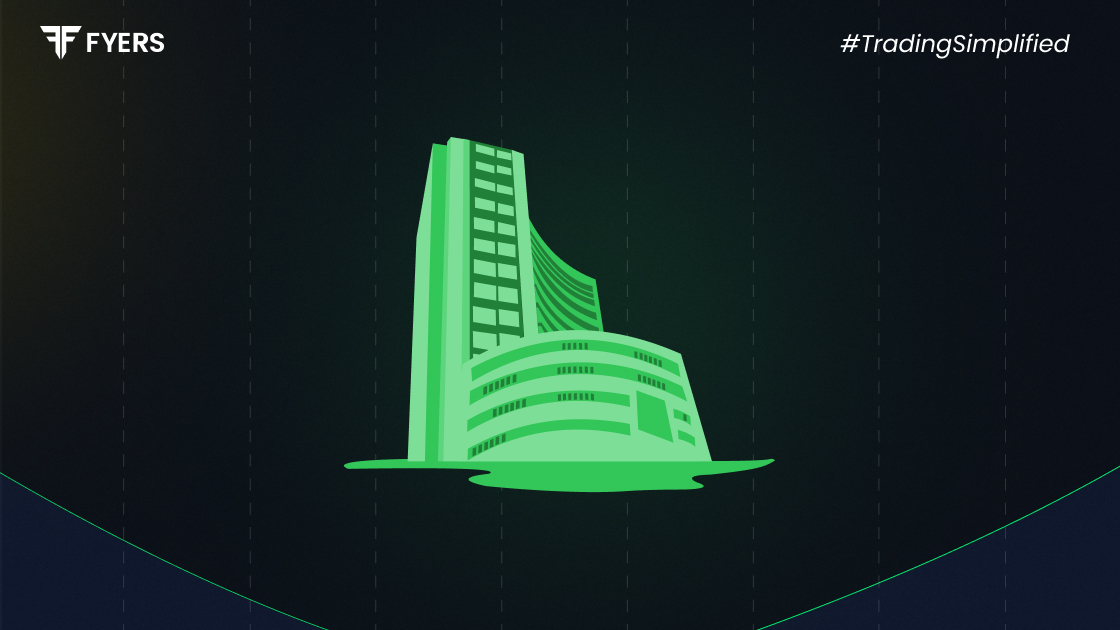

 31 Jul, 2025
31 Jul, 2025
 3 mins read
3 mins read

The Bombay Stock Exchange (BSE) is a major financial institution in India, playing a significant role in the country’s capital markets. As one of the oldest stock exchanges in Asia, BSE provides a platform for trading various securities including shares, bonds, and derivatives. Understanding how BSE functions is crucial for anyone interested in the Indian financial system.
The Bombay Stock Exchange (BSE) is India’s first and oldest stock exchange, offering a platform for investors to trade in financial securities. It facilitates transactions in equity, debt, derivatives, and mutual funds. BSE operates through an electronic trading system, making the trading process efficient and transparent.
It is recognised by the Securities and Exchange Board of India (SEBI) and serves as an important component of the Indian financial ecosystem.
BSE functions through an advanced electronic trading system called BOLT (BSE OnLine Trading). Here is how the system operates:
Order Placement: Investors place buy or sell orders through registered brokers.
Order Matching: The system automatically matches compatible buy and sell orders.
Trade Confirmation: Once matched, the trade is confirmed.
Clearing and Settlement: BSE partners with Indian Clearing Corporation Ltd. (ICCL) for smooth settlement.
Monitoring: BSE monitors trades in real-time to prevent malpractices and maintain market integrity.
BSE offers several features that ensure efficiency and investor confidence:
Fully Automated Platform: Trades are executed electronically through BOLT.
Wide Market Access: Investors from across the country can participate.
Variety of Products: Equity, debt, derivatives, ETFs, and mutual funds.
Transparency: Real-time data is made available to the public.
Investor Protection: Adheres to SEBI guidelines and has a dedicated grievance redressal system.
The BSE has a rich legacy dating back to the 19th century. Here are some major milestones:
1875: Established as "The Native Share & Stock Brokers' Association".
1957: Recognised as the first stock exchange by the Indian Government under the Securities Contracts Regulation Act.
1995: Introduced BOLT, India's first screen-based trading platform.
2012: Launched SME (Small and Medium Enterprises) platform.
2017: Became the first listed stock exchange in India.
The Bombay Stock Exchange plays multiple roles in supporting the Indian economy:
Capital Mobilisation: Provides a platform for companies to raise funds from the public.
Liquidity Creation: Enables easy buying and selling of securities.
Price Discovery: Facilitates determination of fair market value through demand and supply.
Investor Awareness: Conducts educational programmes and initiatives.
Regulatory Compliance: Ensures companies and brokers adhere to legal and ethical standards.
Indices represent the overall market sentiment and performance. BSE manages several indices, with the most notable being:
|
Index |
Description |
|---|---|
|
SENSEX |
Tracks 30 of the largest and most actively traded companies. |
|
BSE 100 |
Covers top 100 companies across sectors. |
|
BSE Midcap |
Represents medium-sized companies. |
|
BSE Smallcap |
Reflects performance of smaller listed firms. |
|
BSE Bankex |
Comprises leading banking sector stocks. |
These indices help investors track the market and benchmark their investments.
To trade on the BSE, follow these steps:
Open a Demat and Trading Account: Select a SEBI-registered stockbroker.
Complete KYC Formalities: Submit documents like PAN, Aadhaar, and bank proof.
Add Funds: Transfer money into your trading account.
Place Orders: Use the broker’s platform to buy or sell shares.
Trade Settlement: Trades are cleared and settled by ICCL as per the settlement cycle.
New investors should educate themselves or consult experts before trading.
The Bombay Stock Exchange is a vital institution in India’s financial infrastructure. With a history spanning more than a century, BSE continues to evolve with modern technology and global standards. It supports investors and companies alike by offering an efficient platform for capital market transactions. Understanding how BSE works can help investors navigate the market more confidently.
BSE stands for Bombay Stock Exchange.
BSE was established in 1875 and is the oldest stock exchange in Asia.
BSE provides a platform for trading in securities, helps companies raise capital, ensures liquidity, and promotes transparency in the financial market.
Calculate your Net P&L after deducting all the charges like Tax, Brokerage, etc.
Find your required margin.
Calculate the average price you paid for a stock and determine your total cost.
Estimate your investment growth. Calculate potential returns on one-time investments.
Forecast your investment returns. Understand potential growth with regular contributions.